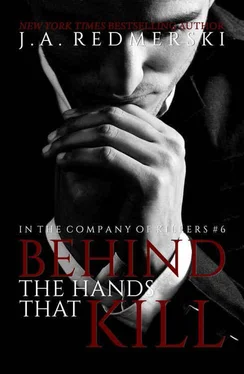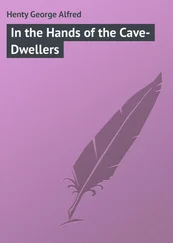He crouched in his flashy suit to be eye-level with me, still out of my reach.
“Go on,” he urged, cocking his head to one side. “Tell me what you think you know, Faust.”
I cocked my head opposite his.
“You spent a great deal of time and effort talking to me about my and my brother’s hidden relation in The Order—I bet you practiced that in front of a mirror.” (He snarled, but kept his cool.) “You are at war with yourself: you want to tell me something I do not know, that you feel I should have figured out by now, so you can feel like you finally have something over me, that for once in your life, you are better than me at something. But you cannot, because you still work for The Order. You are now—last I heard, anyway—Vonnegut’s new Golden Boy, his top operative. You are now what I used to be. You now have what you feel you were robbed of when you trained me.”
Morrison’s jaw hardened.
I shrugged, pursed my lips on one side.
“You are not the first operative under Vonnegut,” I went on, “who despised me because I was better at my job than you were; because Vonnegut favored me over you.” I straightened my head, looked him dead in the eyes, taunted him, because it was working so well. “My own brother had his issues with me for the very same reasons. But I find it peculiar how much deeper your jealousy runs—at least Niklas got over it.”
His hand latched around my throat, nearly crushing my windpipe. I felt the veins in my temples bulging; the air cut off from my lungs, sounding the alarms inside my brain. But I maintained my still position on the floor, and I willed my mind to allow me control, even if only for a few seconds before I had to succumb to the sensation of being choked to death.
“Say what you wanted to say, Morrison.” My voice was rough, strained.
He squeezed harder—my eyes began to water.
“Go on,” I continued. “Say it. You want to…you could”—I was losing the control; I began to choke—“…you could get it off your…chest and then kill me…afterwards. Is…getting one over me not worth…the…money you would lose?”
Beyond the blurring of my vision I saw his lips furrow in anger.
He was going to do it—he was going to choke me to death just like I choked Marina; I was going to die, right there, covered in Izabel’s blood.
With my free hand, I secretly reached for the knife hidden underneath my leg.
I could not see.
I could not breathe.
I could not…I needed the information.
My eyes opened and shut, opened and shut, but all they took in were the darkening colors and lights; the veins in my temples were on the cusp of bursting.
If I did not kill him soon, he would kill me.
Izabel. What if she is still alive?
Fuck the information!
Grasping the knife in my fist, I started to gut him, but just before I slid my hand from beneath my leg, he let go of me; the back of my head was crushed against the bars, sending a shockwave through my skull and a ringing through my ears; a great surge of air rushed back into my starved lungs. I coughed and gasped, left the knife in its place and instinctively raised my free hand to my throat.
My eyes opened a sliver at first, and then all the way; although I could see, everything remained blurred. Morrison was out of my reach again; he stood tall, pacing the limited space the floor provided.
Finally, everything blurred back into focus.
I saw Morrison’s throat move as he swallowed. He reached up and straightened his tie, then smoothed his hands down the front of his suit jacket. Rounded his chin. Cracked his neck.
“The money you’re worth alive,” he said, “will benefit me more than the satisfaction.”
“Maybe so,” I said, still breathless, “but you have to take me in before you see a penny of it.” I grabbed the knife with my dreaded thirty-percent hand, and sent it hurling at him. And in that second it took to hit the target, I held my breath hoping that my aim had improved over the years.
“And I take it,” Izabel says, “that because we’re still alive, that your aim did improve?”
I want to smile at her, mostly because I am happy to see her here, but I refrain.
I nod. “Yes,” I say. “It did not take him long to bleed out from the neck. I waited for him to die. I sat there, drenched in blood and sweat, thinking of you”—I look Izabel right in the eyes, but then just as quickly, I look away—“and once he was dead, I dragged his body by the ankle over to me, and I fished the handcuff key from his pocket. I took his gun, and I left.”
“But what about Izabel’s bounty?” Niklas says, as if he is stepping in for her.
Back off, little brother, or you and I will have that much more added to our growing list of problems.
“That information came later,” I say out loud, “after I went looking for Izabel and the woman who took her. As I ran down the street, barefoot and bloody, I began to doubt that the woman could be trusted, that I, in my most desperate moment, fell for the most basic of tricks, and that there was no way she really took Izabel to a public hospital for treatment.”
I pause, and turn to the window again.
“But she did,” I say, staring into the distance, letting the scene materialize in front of me. “And when I arrived, and saw that Izabel, although unconscious and near death, was still alive, and when I saw the woman sitting in the room watching over her, not only was I thankful, but I somehow knew right away, that I was looking directly into a mirror.”
“A mirror?” Niklas asks.
“Yes, brother,” I say, still with my back to everyone. “A mirror.”
Victor
Venezuela…
I did not know how long I had been with Morrison before I killed him and set myself free, or how long it took me to find the hospital, but by the time I arrived, Izabel had just come out of surgery.
“Señor! Señor! You can’t go in there!” a nurse screamed at me in Spanish. And when she ran into the room behind me, saw the extent of the blood on my clothes, she instantly backed away.
Two more nurses rushed in; they took one look at me, eyes wide and panicked, and either thought I was in need of a doctor myself, or I was the one who cut open Izabel’s throat.
The woman who had brought Izabel to the hospital, shot up from the chair. “It’s OK,” she also spoke in Spanish, motioning her hands, “he’s not the man who did this; he is her husband; he was attacked, too.”
The nurse’s eyes darted between me, the woman, and Izabel lying on the bed.
I ignored them all and went quickly over to the bedside.
The police were there in under five minutes, and as I sat with Izabel, holding her hand, the woman did most of the talking, reiterating what she apparently had told them when she first arrived without me. After they asked me questions, and I told them what happened—a fabrication, of course—they left us alone.
I stayed with Izabel for a long time before I went outside into the hall, and I sat down next to the young woman who looked to be in her mid-twenties, but I got the feeling was a little older. She had soft brown hair that fell to her breasts, bright blue-green eyes, and freckles splashed across the bridge of her nose.
It was eerily quiet in the hospital; I could vaguely hear the nurse’s rubber-soled shoes squeaking against the floor, and a computer keyboard being tapped, and a life-support machine—Izabel’s life-support machine—beeping steadily from the cracked door of her room.
I sat hunched over, my forearms on the top of my legs; my feet were still bare, and my injured hand was wrapped in a bloody cloth. The woman beside me sat with the back of her head against the white brick wall. The bench beneath us was made of wood; I could distinctly smell the black paint that it had been coated with last.
Читать дальше












